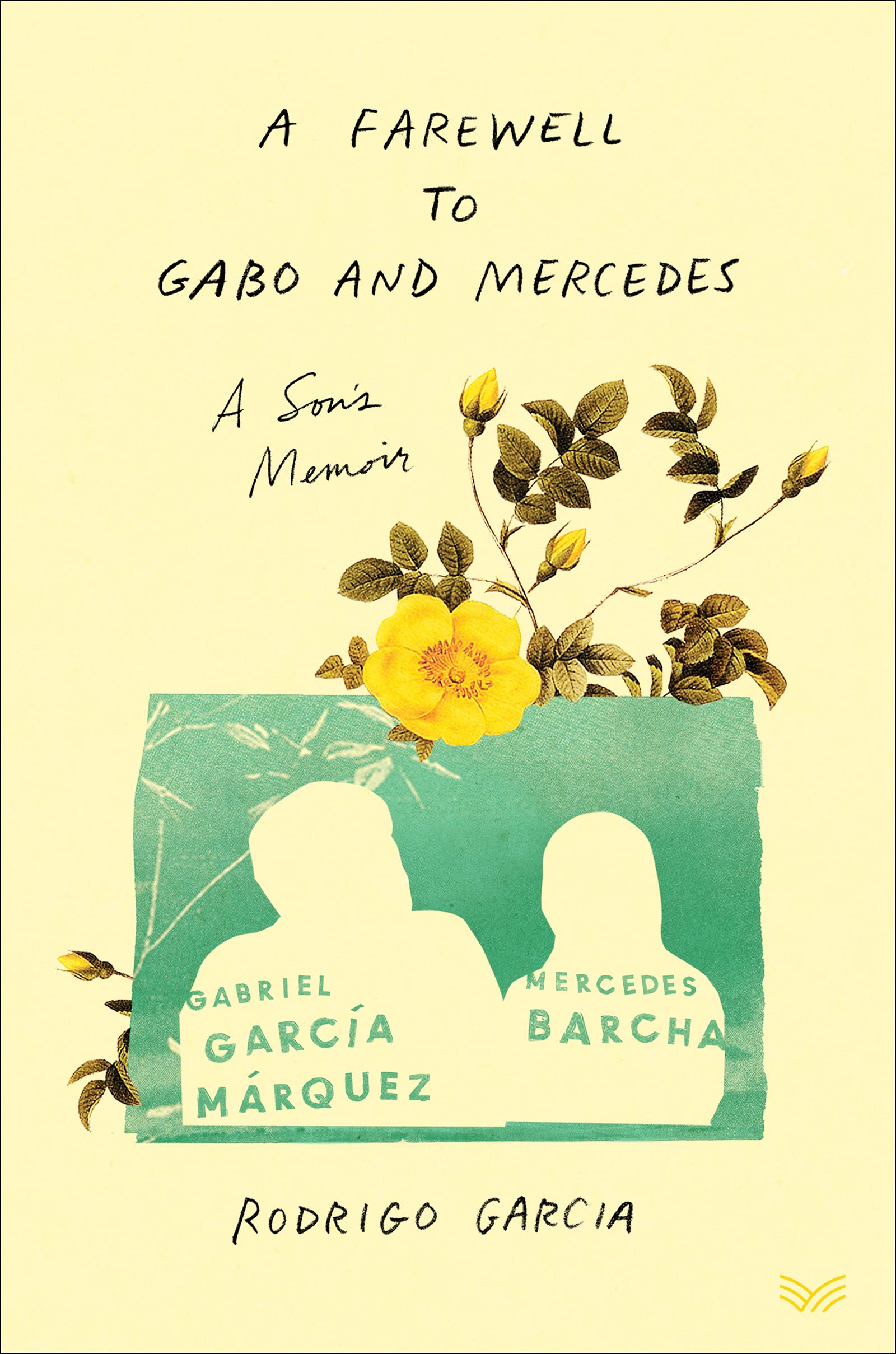A Farewell to Gabo and Mercedes: A Son’s Memoir by Rodrigo Garcia (HarperVia)
In A Farewell to Gabo and Mercedes, Rodrigo Garcia, the eldest son of Nobel Prize winning-novelist Gabriel García Márquez, chronicles the deaths—along with rich glimpses of the lives—of both his parents. Reading an intimate portrait of the last days of one of the most internationally beloved authors of the twentieth century would be a compelling draw for many readers, but this book’s insights are far more generous than that initial enticement.
With an unprecedented number of people now entering their twilight years—and with the grown children of that aging generation embarking on the fraught process of caretaking and bidding farewell—there is more reason than ever to appreciate a book that so tenderly chronicles the experiences of both, including not only the final loss of a parent, but also the years of mental and physical deterioration that often precede death.
Garcia recounts his father, Gabo, lamenting the fact that he wouldn’t be able to write about his own death. And he imagines his mother, Mercedes, following her own passing six years after her husband’s, wanting to ask her son about her death, to understand how it was for everyone. Writing being the ultimate way of engaging with the most profound experiences of our lives, we are fortunate then that Garcia took up the challenge in their absence. As we observe him in the final weeks of his father’s life traveling back and forth between Los Angeles and Mexico City where his parents made their primary home outside of Colombia for more than thirty years, we are given the chance to mourn and grieve alongside him.
For even as the author contends with his own formidable loss, he demonstrates remarkable compassion for the readers and fans suffering their own sense of bereavement for a public figure who lived in the hearts of many. The ownership of a person’s memory—who we think they were, how we thought they moved through the world—and of the right to grieve that absence can be a contested privilege, no less so than for the one doing the grieving. Our parents, whether famous or not, can remain mysterious to us, and their aging does not unravel the complications of their stories or personas. Garcia reckons with his own moments of unknowing, and thereby opens the door for the reader onto a record of grief as vulnerable and flawed as our own.
Garcia writes with the frank honesty of a friend who knows he can only untrouble himself by speaking the plainest truths without embellishment or gilded profundity. A Farewell to Gabo and Mercedes is a slim volume, but there is nothing slight about this book, just as any scant words exchanged between two friends in a moment of raw grief have the potential to reverberate for years. This book is one of those conversations we never forget, but learn from and hold close for comfort.



